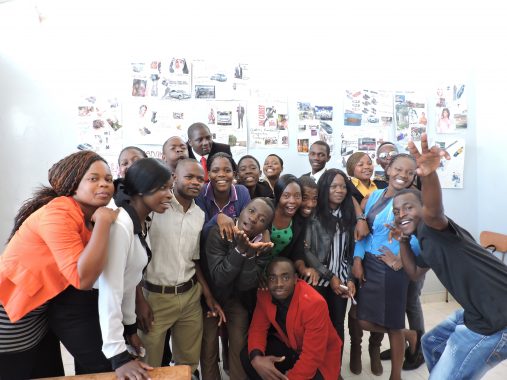University of Zimbabwe’s Combating COVID-19 through Digital Innovation and a Community-Driven Approach (Zimbabwe)
University of Zimbabwe in partnership with Simbiso Jumpstart and Glen Norah Community Cooperative addressed the devastating COVID-19 impacts on people’s livelihoods and the local economy. The partnership aimed to promote decent employment creation and income generation by providing entrepreneurship education and establishing a revolving loan facility for vulnerable small and medium-sized enterprises and entrepreneurs.
The University of Zimbabwe’s paNhari program established a partnership with the Glen Norah Community Cooperative in 2017. Glen Norah Community Cooperative is a member-based group in Glen Norah suburb, established to advance the social and economic interests of the community. paNhari students have become an essential part of the Glen Norah community. The students periodically meet with community leaders to identify urgent needs and co-design innovative, community-driven initiatives.

paNhari’s approach to partnership is grounded in the conviction that collaborations with a consortium of local community partners creates a society better able to address its own problems. This approach guides the program’s efforts to collaborate with local entities to strengthen program quality. Utilizing a crowd mapping COVID-19 innovation platform, the project will gather key input from critical stakeholders, analyze data to work to safeguard vulnerable people’s livelihoods and set foundations for early economic recovery and resilience.
paNhari Co-Founders Phil Mlanda and Donald Bodzo noted, “Overreliance on the informal sector rendered Zimbabwe’s economy vulnerable to a number of shocks and stresses,” and the number of citizens in poverty “rose to 7.9 million in 2020 due to the COVID-19 pandemic.” The goal of the partnership was to safeguard the livelihoods of vulnerable populations and create resources for economic recovery and resilience. The project promoted “employment creation and income generation by providing entrepreneurship education and established a revolving loan facility for the vulnerable Small-to-Medium Enterprises (SMEs) and entrepreneurs in Mabvuku,” a suburb of Harare.
Impacts
University of Zimbabwe students worked with partners to create a digital platform that was able to identify and visual impacts of COVID-19 on the Harare Province to mobilize and deploy assistance. Using aggregate inputs from community members gathered through social media, they “created a digital map that provided up-to-date information to the University of Zimbabwe for purposes of effectively deploying resources to the affected communities and conducting COVID-19 sensitization and awareness campaigns.” They solicited applications from SMEs and received over 350 submissions in a period of three weeks. The project assessed the needs of the SMEs and provided entrepreneurial education and a revolving loan facility, which provided low-interest, short term loans to address immediate liquidity-shortages.
The University of Zimbabwe’s partnership approach is based in the belief that collaboration with local community partners leads to more successful problem-solving, and the paNhari program urges higher education institutions to continue forging alliances with their communities. Mlanda and Bodzo emphasized that, “higher learning tertiary institutions need to renew focus, prioritize inclusivity, re-up university commitments to working effectively with community partners, the private sector, and other bodies to develop closer working relationships.” Through their partnership with local organizations as well as through the Community of Practice with University Award winners, the initiative was able to work more effectively and share knowledge that benefited all collaborators. They noted that “The current global pandemic has reminded us of our interdependence and the importance of establishing deep connections with each other.”
Learn more about the paNhari program here.